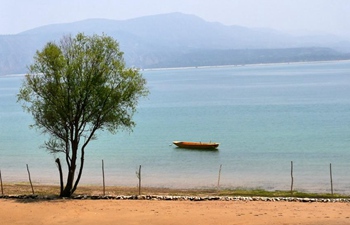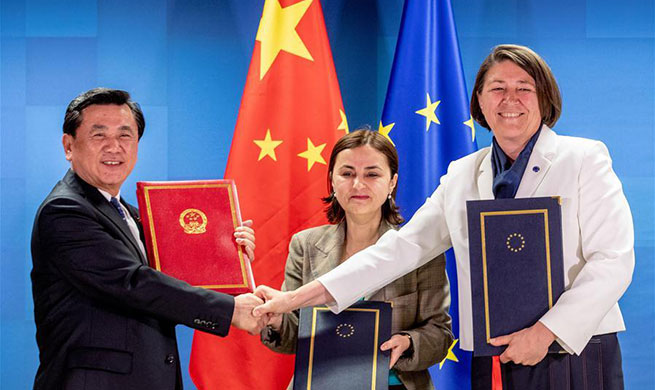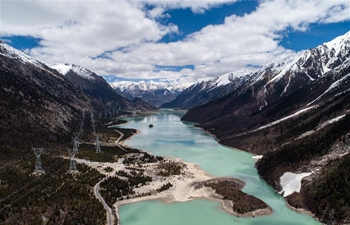ROME, May 21 (Xinhua) -- Italy's climate skeptic government has submitted a bid to host the world's most important climate change negotiations. Analysts are applauding the move.
Rome has applied to host the 26th Conference of the Parties, best known as COP26, next year. The annual gathering, run under the auspices of the United Nations, is the biggest and most important multilateral climate change forum.
In previous years, the COP process has included such landmark summits as COP3 in Kyoto, Japan, in 1997, which gave birth to the first major climate agreement, the Kyoto Protocol; COP15 in Copenhagen in 2009, which was the first attempt to produce a far-reaching global climate pact; and COP21 in Paris four years ago, which produced the first-ever climate agreement requiring action from every country.
Next year's negotiations are expected to be another key landmark: 2020 is the deadline for countries to submit their national plans to reduce greenhouse gas emissions aggressive enough to help the world avoid the worst impacts of climate change.
"There are COP meetings that come at key junctures and others that set the table for the big ones," Mariagrazia Midulla, head of the climate and energy division at WWF Italia, an environmental lobby group, told Xinhua. "COP26 will be one of the big ones."
According to United Nations rules, the COPs rotate between five geographical regions. In 2020, the conference must be hosted by a western European nation. The United Kingdom has also announced plans to bid as a host, and has lobbied Italy to back out. But observers said the prospect of having the conference in a country in the midst of its withdrawal from the European Union worries many.
Italy hosted one such summit before, COP9, which was held in Milan in 2003. But those talks took place in Italy under a Hungarian presidency. If approved, Italy's bid for 2020 would include holding the presidency of the talks, which would give Rome the responsibility to organize the negotiations, select the priorities for the talks and push an agenda.
Is that a role for Italy, which under the government of Prime Minister Giuseppe Conte has aligned itself with climate skeptical forces and has so far struggled to stay on message with many of its policy initiatives? The price tag for hosting a COP -- sources indicate that recent summits cost between 15 million and 50 million U.S. dollars to host -- could also be a challenge for the cash-strapped Italian government.
According to Riccardo Valentini, director of the climate impact division at the Euro-Mediterranean Center on Climate Change, Italy's bid is the brainchild of Sergio Costa, Italy's minister of environment. Costa is a retired brigadier general in Italy's Carabinieri police and an environmental protection advocate not aligned with the climate skeptic elements in the Conte government.
"Minister Costa is the one pushing for this conference," Valentini said in an interview. "It was never a priority before he lobbied for it."
Valentini noted that despite the climate-related stances of the government as a whole, polls showed most Italians were in favor of taking action to confront the risks associated with climate change.
Both Valentini and Midulla said that, despite speculation about a government like Italy's shepherding the international climate negotiation process through a key phase, the risks are smaller than they might seem at first -- and the process may also yield environmental dividends for Italy.
"Individual member states in the European Union don't negotiate climate policy on their own, it's done in the European context," Valentini said. "That was the case in Paris in 2015 and it would be the case in 2020."
"Hosting a big climate summit will call attention to the issue in Italy," Midulla said. "In 2003, Italy's climate-related policies became more comprehensive after COP9. I think we'd see the same thing after COP26."













